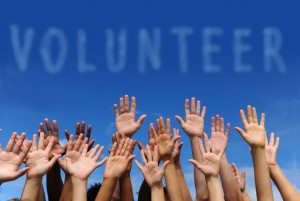
Program Director, M.Ed. in School Counseling at American Public University
School counselors can be a valuable resource in disaster relief work. Up until a few years ago school counselors were not eligible to volunteer. During the hurricane season of 2005, I had the opportunity to volunteer with the Red Cross as a disaster mental health volunteer. After completing Red Cross training, I waited for my deployment orders expecting to be sent to New Orleans. Plans changed when Hurricane Wilma hit Florida the following week and I was soon headed there.
I discovered during this two week deployment that my preparation as a school counselor had value beyond the walls of a school building. The experience also improved my skills as a counselor. I quickly noticed the parallels between disaster mental health work and school counseling. These similarities include assisting with basic needs, assessing and establishing a support network, and providing brief counseling support and interventions.
Deployment Experience
When I arrived in Orlando, I learned that the Red Cross location had been moved to Miami. School counselors are known for being flexible and adjusting to change at a moment’s notice. I attended trainings, in-processed, and waited for my official assignment. After another three hour drive, I ended up in Key West as one of the first responders. Being an initial responder meant that flexibility would be needed once again. Plans changed from moment to moment and resources were not available.
One of the first duties was to assess the needs of people in the community by working at a Red Cross center and through door to door outreach. Each day, we encountered new and challenging situations. I had the opportunity to be a leader, advocate, collaborator, and systemic change agent, which are all familiar roles in school counseling (American School Counselor Association, 2012).
One situation involved advocating for a parent who had a child with special needs. Another involved conducting a suicide assessment for an individual who had suffered significant loss. I provided resources and information for individuals in distress and helped to create activities for the children waiting with their parents. I helped assess the conditions of a shelter with two other volunteers and advocated for closing it down due to the extensive mold and unhealthy conditions.
Despite the circumstances, I witnessed resilience and a giving spirit. Neighbors were helping neighbors and children were enjoying games led by the disaster mental health team. The experience gave me a new perspective on human resilience and taught me to appreciate what I often take for granted.
In the midst of crisis, the children at the center needed a sense of normalcy. Families waited in very long lines with their children (often for several hours) hoping they would qualify for assistance. The disaster mental health team noticed that the children were not receiving any type of support. We quickly organized appropriate activities to help them cope with the situation, provided respite for the parents, and helped restore some sense of normalcy. We led games like Red Rover and Duck, Duck, Goose and provided paper and crayons to help children express themselves through drawing or writing. Providing brief counseling during these activities was second nature to me. It felt like a “normal” day as a school counselor.
At the time of my deployment, school counselors were not eligible to serve as disaster mental health workers. In 2008, the Red Cross recognized the value of school counselors and expanded their eligibility requirements to include state certified school counselors (Yin, 2011). This opened the door for professional school counselors to use their skills to assist their local communities and respond to national disasters. Yin (2011) writes, “school counselors have reinvigorated the program with new volunteers that bring a wealth of experience in crisis response, child/family support and community networks” (p. 16).
Volunteer Opportunities for School Counselors
If you interested in serving as an American Red Cross disaster mental health volunteer, visit www.redcross.org to access training information in your local area. Training opportunities are also available at the American Counseling Association (ACA) conference and the American School Counselor Association (ASCA) conference. More information is available at www.counseling.org (ACA) and www.schoolcounselor.org (ASCA).
References
American School Counselor Association (2012). The ASCA National Model:
A Framework for School Counseling Programs, Third Edition. Alexandria, VA: Author.
Yin, R. (2011, September/October). Becoming a Red Cross volunteer.
ASCA School Counselor, 49(1), 16-17.
About the Author:
Dr. Ratliff holds an Ed.D. in Counseling Psychology, M.Ed. in School Counseling, and B.S. in Psychology. She has been with APUS since September 2010 and is an Associate Professor and Program Director of School Counseling. She is a National Certified Counselor (NCC), National Certified School Counselor (NCSC), K-12 Certified School Counselor (VA), and a Trauma and Loss School Specialist with 12 years of experience as an elementary and middle school counselor.
Comments are closed.